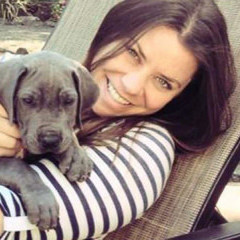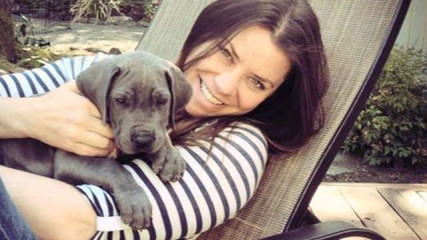
The voice of Brittany Maynard, who died in November, influenced the California Senate passage of a right-to-die act June 4.
Brittany Maynard wasn’t in the California Senate Thursday (June 4) when it overwhelmingly approved right-to-die legislation.
But surely people heard the echoing voice of the young woman with aggressive brain cancer who chose to die Nov. 1.
In a series of emotional videos (sponsored by right-to-die backer Compassion & Choices) Maynard told the world she felt forced to leave her California home for Oregon to die as she wanted to die – with a legal lethal prescription. And she wanted her voice from the grave to encourage people to seek such legislation in every state.
Her family was at the Senate on Thursday when the End of Life Option Act passed. It now moves to the State Assembly. If it passes there, the governor has not yet said whether he would sign Act and make California the sixth and most populous state to allow physician-assisted dying.
That’s what it’s called: Physician-assisted dying. The summary of SB 128 spells out that it “provides peace of mind and control for the terminally ill Californians while safeguarding against coercion for those who are vulnerable..”
Indeed, along with lengthy and complex procedures to safeguard the process from abuse, along with exemptions for any health care practitioner and any health institution that refuses to offer such assistance, the act specifically stipulates that it is not be called “suicide.”
READ: 5 things to know about death and dying debates
“Suicide” calls to mind depressed people and lovesick teens – not a 29-year-old with an incurable tumor about to rob her of her sense of self, as Maynard called it. It’s for people with incurable and irreversible illness that will certainly kill them. The only question is whether the suffering person decides when.
“Californians with terminal diseases should have the autonomy to approach death on their own terms, and I look forward to continuing this policy discussion in the Assembly,” Sen. Majority Leader Bill Monning, one of the backers of the bill, said in a statement Thursday.
Similar right-to-die legislation is already law in Oregon, Washington State, Montana and Vermont and under discussion in a nearly a dozen more states.

Kara Tippets, who publicly opposed right-to-die-legislation and counseled Brittany Maynard not to take a lethal prescription, chose this image for the final blog post she wrote herself. She died Sunday, March 22, 2015
Opponents – who invariably call it “suicide” and sometimes incorrectly link it with deliberate killing or euthanasia -– view such bills as a horrendous attack on the chronically ill and disabled and vulnerable. Dozens of faith-based hospitals and institutions and religious groups particularly evangelical and Catholic ones, and disability rights groups testified against the act..
“What kind of society are we? I don’t believe we are in a disposable one, when it comes to shortcutting the natural course of life,” said Sen. John Moorlach, R-Costa Mesa, according to the Contra Costa Times coverage.
Sen. Mike Morrell, R-Rancho Cucamonga, raised the alarm: “We are becoming a culture that devalues life.”
However, the law also stipulates that the person seeking to die at their own hand with a physician-prescribed lethal drug, must be able to make the request themselves directly — advance directives or a request by someone else acting with power of attorney will not be accepted.
And doctors must “inform the individual of feasible alternatives or additional treatment options including, but not limited to, comfort care, hospice care, palliative care, and pain control.”‘
Monning’s reply to critics: “It is our constitutional responsibility to navigate the shores of a changing world — a world that sees this option as a compassionate option: death with dignity.”
On what would have been Maynard’s 30th birthday, Compassion & Choices the group released a “call to action” video with passages and narration drawn from prerecorded videos with Maynard.
In the video, Maynard concludes: “If there’s one message to come away from everything that I’ve been through, it is no matter what life kind of presents you with, is never be afraid to use your own voice. And even if you are uncertain, even if your voice is shaking, ask the questions you want to ask, speak up for yourself. Advocate.”
Another woman, who also died of cancer, is a voice from the grave as well.
But Kara Tippetts, an evangelical Christian writer who died at age 38 from breast cancer, spoke in videos, posts at her blog, Mundane Faithfulness, and letters about why God would not want Maynard — or anyone — to choose death. Her story also lives on. A documentary is planned with a trailer up on YouTube.
In the weeks before Maynard’s death, Tippetts sent her an open letter. In it, she thanked Maynard for opening the door to public conversation on death and dying but, she wrote: “Dear heart, we simply disagree … hastening death was never what God intended.”
Now the question is squarely before the California legislature. Can a state legislate God’s intentions?





